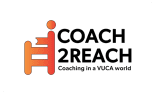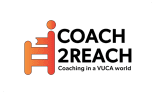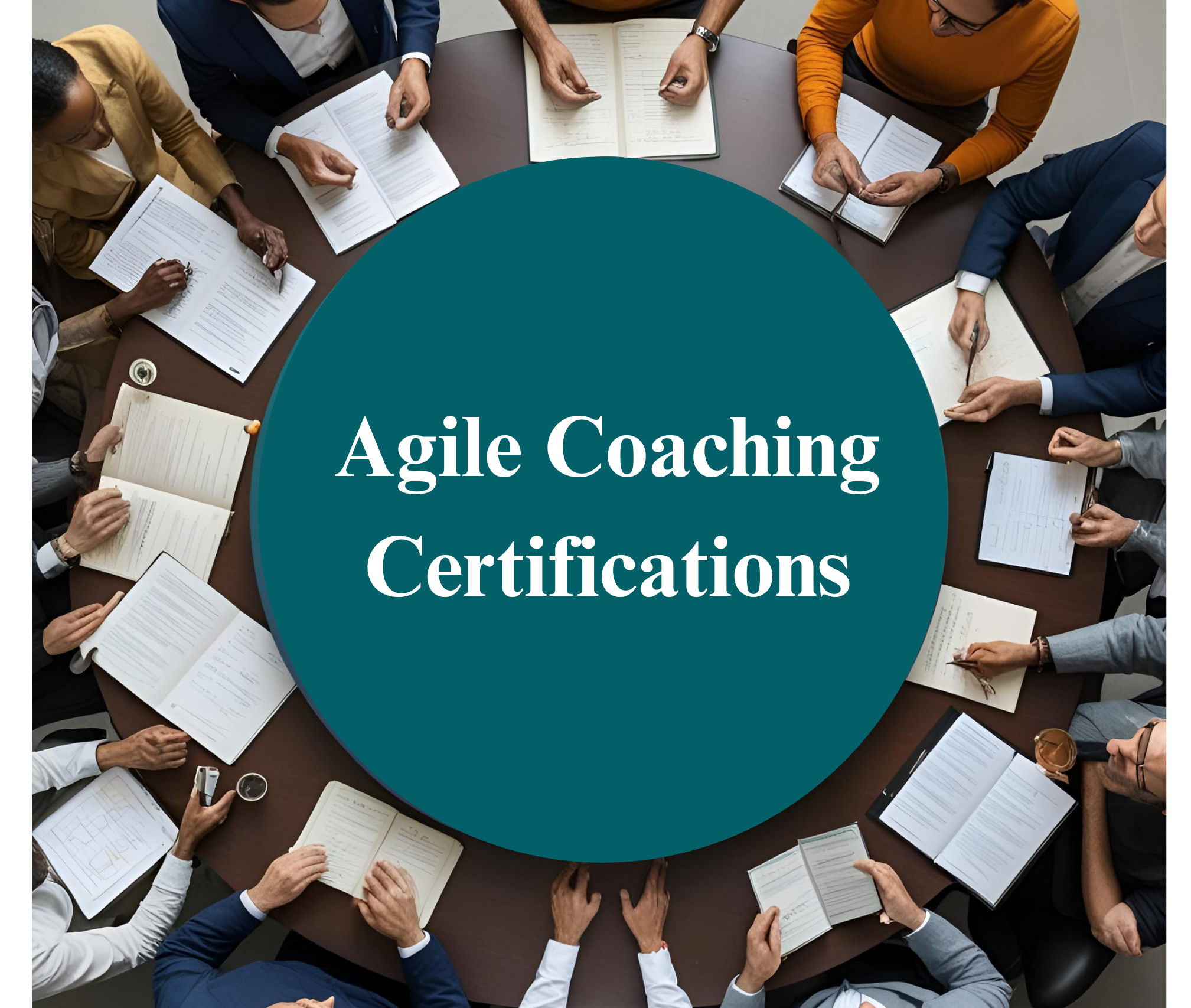Agile Coaching Online Certification
Agile Coaching Online Certification: Become an Agile Coach

Agile Coaching Certification
Agile coaching certification is becoming increasingly important in today’s rapidly changing technology. As organizations strive for efficient and effective project management, the need for certified professionals with expertise in this area has grown exponentially. This article will provide an overview of Agile coaching certification, exploring its purpose and benefits and providing information on what steps are necessary to achieve it.
Agile coaching methodology has become widely adopted by companies around the globe due to its ability to promote collaboration among teams, improve communication between stakeholders, and increase productivity through iterative cycles. It is a popular approach that provides a project structure while allowing flexibility and adaptability. Experts recommend obtaining certification from an accredited program to ensure the successful implementation of Agile principles.
Agile coaching methodology has become increasingly popular for teams to develop software efficiently, allowing for rapid response times to customer needs and expectations. It is essential to have trained personnel who understand its principles and applications. Various organizations have developed certification programs to ensure those performing the roles of coaches or mentors have acquired the necessary knowledge and skillset required for successful implementation.
The ultimate goal of obtaining one of these certifications is to demonstrate competency in agile practices and related activities, including team building, facilitation, communication strategies, conflict resolution techniques, problem-solving methods etc. The following sections will outline several different types of certifications currently available and detail their specific requirements.
Agile Coach Certification is a type of certification that recognizes the knowledge and skills obtained by individuals who have achieved mastery in agile coaching. Agile coaches are professionals with expertise in helping teams adopt an iterative development approach to software engineering. The certification process consists of several tests, assessments, and other criteria that demonstrate the proficiency of the coach in using the Scrum methodology for project management and agile principles.
The focus of an agile coach’s job is to help organizations adapt their processes and practices to use the more modern, adaptive methods associated with agile project management. This includes identifying areas where improvements can be made, teaching team members how to apply best practices, providing guidance on project decision-making processes, facilitating meetings, improving stakeholder communication, leading retrospectives, and more.
Agile Coaching Certifications provides tangible evidence that those certified deeply understand all aspects of agile coaching. It demonstrates their commitment to continually learning about new field developments and trends. Completing an accredited training program or assessment is required to obtain such certification.
Tips For Being A Successful Agile Coach
Being a successful agile coach requires careful consideration of several important principles. The following table provides an overview of the key factors to consider when striving for success in this role:
|
Factor |
Description |
Benefits |
|
Communication Skills |
Ability to effectively communicate and listen, ask questions that uncover root causes, and frame constructive feedback. |
Establishes trust between team members; encourages collaboration and open dialogue; enables productive conversations that create meaningful change. |
|
People-Centered Approach |
Facilitating conversation and problem-solving instead of imposing solutions; helping people build on their strengths and skillsets. |
Develops autonomy within teams; fosters creative thinking by allowing individuals to take ownership of their work; increases motivation through empowerment. |
|
Leadership & Coaching Expertise |
Understanding how to lead without authority and teach without instruction; leveraging coaching techniques to remove obstacles from team processes. |
Improves decision-making capabilities while supporting team goals; allows coaches to be mentors and challengers during each sprint cycle. |
Agile coaches must also cultivate self-awareness, emotional intelligence, empathy, resilience, and flexibility to facilitate sustainable organizational culture changes. This can include guiding organizational values such as transparency, trustworthiness, respectfulness, reliability, decisiveness, accountability, honesty and authenticity. By honing these essential qualities over time, one can become an effective leader who best supports individual teams’ needs while driving positive results across the entire organization. Therefore becoming a successful agile coach will require dedication but can result in significant rewards if done correctly.
Challenges Faced By Agile Certified Coaches
Certified Agile Coaches (CACs) face several challenges when attempting to instill an agile mindset and culture within their organization. First, CACs must understand the client’s and stakeholders’ needs and goals to craft successful coaching strategies. This requires extensive knowledge of organizational dynamics, decision-making processes, team dynamics, and communication norms within the company. Furthermore, CACs need to ensure that they are up-to-date on the latest trends in agile methodologies and frameworks so that they can effectively apply them in various contexts.

Another challenge certified coaches face is creating an environment encourages team collaboration while promoting individual autonomy. CACs must work with leaders and members alike to foster team trusts through open dialogue, active listening skills, and clear expectations for performance and feedback. Additionally, CACs must ensure that each team member feels empowered to take the initiative and ownership over their assigned tasks.
Finally, CACs encounter difficulty bridging the gap between theory and practice. They must demonstrate how certain concepts or ideas can be applied practically within organizations for clients to gain maximum value from the training sessions they provide. In addition, CACs need to help create metrics that can measure success across multiple levels, such as timeframes completed or customer satisfaction ratings. Such metrics provide tangible evidence of progress towards achieving desired outcomes from the coaching program they implemented.
What Does An Agile Coach Do?
Agile Coaching is a complex and multi-faceted profession that encompasses various roles. To understand how an agile coach works, it is important to consider this role’s skills, activities, and responsibilities. The following list outlines what an Agile Coach does:
- Mentoring and educating teams on the principles of agile methodologies
- Facilitating team meetings to ensure successful collaboration between stakeholders
- Driving continuous improvement by identifying areas for development within processes or workflows
- Encouraging self-organization among members of the team while providing guidance where needed
- Identifying potential risks and resolving conflicts as they arise.
Becoming an Agile Coach requires specialized training and certification to demonstrate proficiency in these areas. This can be accomplished through taking courses offered by different organizations specializing in Agile coaching and obtaining certifications such as Professional Scrum Master (PSM) or Certified Scrum Professional (CSP). With proper education, experience, and certification, individuals can gain recognition and credibility amongst their peers while accessing more opportunities within their field.

Rewards Of Being An Agile Coach
Agile coaching offers numerous rewards and benefits to those who pursue certification. This practice allows professionals to develop skills while gaining insight into the agile project management methodology effectively and efficiently. Additionally, it allows coaches to draw on their knowledge base and hone communication and problem-solving techniques as they guide teams through complex projects.
The most significant benefit of becoming an Agile Coach is the ability to help others achieve success. Certified coaches can provide guidance and advice by working with individuals within organizations, improving productivity, collaboration, morale, and team cohesion. Coaches can also use their expertise to identify issues before they become major problems by helping teams recognize patterns in behavior and understand how best to respond when conflicts arise.
Finally, being an Agile Coach has tangible financial benefits, such as increased earning potential due to the demand for certified practitioners in many industries worldwide. Becoming an Agile Coach may open up career opportunities such as consulting or leading technical workshops or seminars. Through certification programs offered by professional associations like Scrum Alliance, coaches have access to educational resources, including webinars and online courses; these are beneficial for acquiring new skills and staying current on industry trends that could impact future business requirements.
How To Find Employment As An Agile Coach
Finding employment as an Agile Coach can be a rewarding experience. Researching the different roles and types of organizations that hire Agile Coaches is important to find the best fit for one’s career path. Networking with professionals already employed in this field can also prove beneficial when searching for positions. In addition, several resources are available for those interested in pursuing a career in agile coaching.
There are various job boards dedicated to postings related to Agile Coaching positions. These job sites provide potential applicants with details about current openings and often have tips on applying and preparing for interviews. Additionally, many software engineering companies list their open jobs online, allowing prospective coaches direct access to these opportunities without going through a recruiter or other third party. Furthermore, attending conferences specific to the agile methodology may provide attendees with contacts who could help them connect with employers looking for also consider joining professional associations such as Scrum Alliance or International Consortium for Agile (ICAgile). Being part of these groups will give individuals access to valuable information regarding industry trends, upcoming events, and potential job opportunities. Lastly, reaching out directly to organizations that use agile methodologies is another way aspiring coaches find work; sending resumes directly into company databases increases the chances of being noticed by hiring managers or recruiters at those companies.
Conclusion
Agile coaching certifications provide an invaluable opportunity for current and aspiring professionals to acquire the skills necessary for effective agile development. By understanding the benefits, types of certifications available, eligibility requirements, and cost/time commitments associated with each certification, individuals can make informed decisions about which program best fits their needs. It is important to recognize that certification can be beneficial in furthering a career within agile development, and taking advantage of these options should not be overlooked.
The advantages of becoming certified as an Agile Coach include gaining recognition from employers and colleagues alike, increased job prospects, access to specialized knowledge regarding agile methodologies, and higher earning potential.
In addition to providing improved opportunities within one’s profession, many organizations require specific credentials before hiring an individual or allowing them access to sensitive information.
With this in mind, it becomes clear why obtaining certification is so important when looking to pursue a career in agile coaching.
Eligibility requirements vary depending on the certification type being sought; however, some common prerequisites may include having relevant experience working with teams implementing various practices such as Scrum or Kanban. Additionally, applicants will likely have to pay fees related to registration and examination costs to receive a certificate upon completing all coursework. Finally, due to the time sensitivity involved in mastering certain concepts covered throughout the training programs offered by different institutions, seeking certification may take several weeks to several months, depending on how much prior knowledge was acquired beforehand.
Popular Courses
ICF core Coaching Competencies, NLP Basic Practitioner, TBR Certification Training, Emotional Intelligence in Leadership – CEIL, ICF Professional Coaching, ICF Team Coaching Competencies, TBR Certification Training, ICF Professional Certified Coach, ICF PCC Team Coaching Competencies, Scaled Agile Framework, SAFe Program Consultant – SPC, Neuro-linguisticProgramming(NLP) Practioner Course, TBR Certification, TBR-VE Virtual Edition Class, Team Kanban Practitioner – TKP, ICP Certification Coachin
Popular Tags
Agile coaching, Agile coach certification, Agile methodology, Agile transformation, Agile mindset, Agile leadership, Agile process, Agile team, Agile framework, Agile development, Agile training










